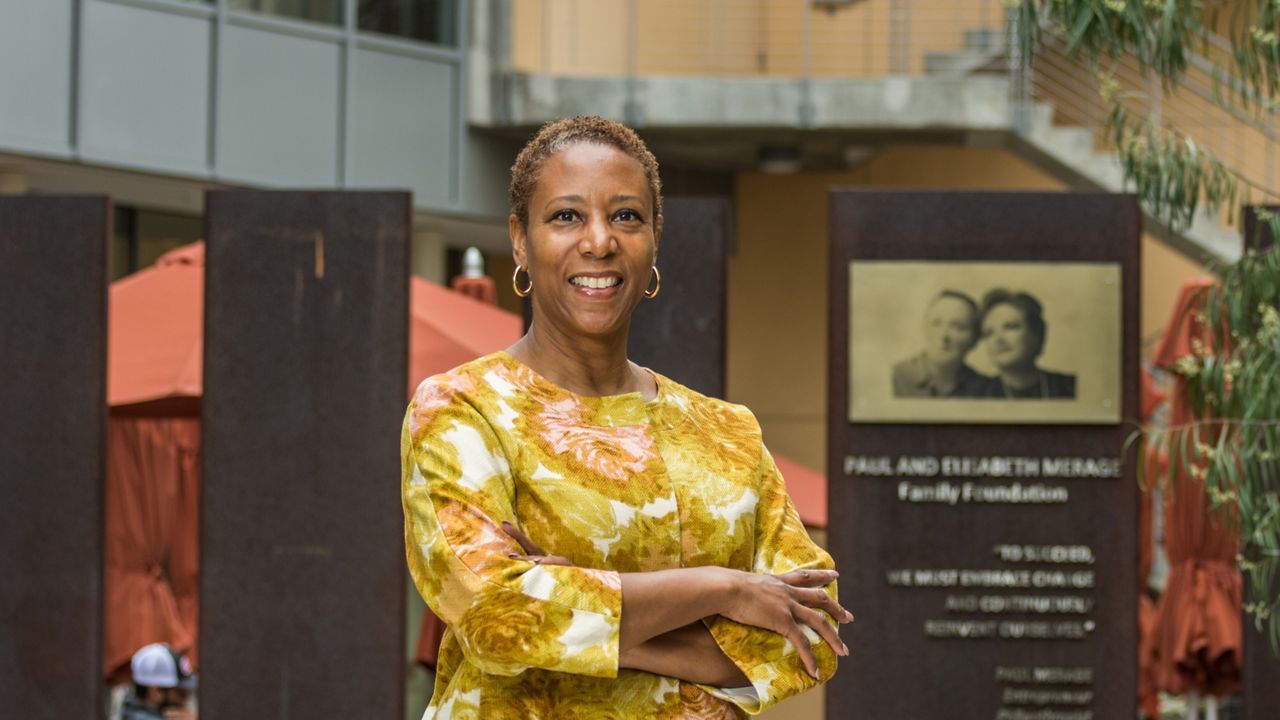An inaugural University of California, Irvine convention open to alumni, faculty and the community starts May 1 and is meant as a booster for Black business leaders and entrepreneurs.
Before this event was organized, students had been meeting only to talk, to check in on each other in the wake of George Floyd's murder — the tragedy superseding discussions of studies and futures.
They were students at UCI's Paul Merage School of Business. Theirs was a gathering of reflection and sharing, a safe place to voice thoughts and feelings of any kind.
The meetings continued as a simple forum of listeners and talkers, but quickly the conversations became focused. Dr. Tonya Bradford, a UCI professor and faculty adviser who helped collect the students, saw the transformation. Students asked about each other's upbringings, aspirations and career goals; about passions and dreams.
"In so much grief, we hadn't done that," Bradford said.
It was the genesis of what would formally become the Black Management Association at the business school.
UCI students gently came together, first as a way to support each other. But then they saw the opportunity for professional networking. Slowly it built as student organizers set about the work-heavy task of writing a constitution and all the many other sundry tasks required for official school recognition. It became official in the fall of 2020, another in a growing list of like organizations in the UC system created in service of developing a critical mass of like-mindedness.
While its formation was partly in response to Floyd's murder by a Minneapolis police officer, its goals tilt toward supporting Black entrepreneurs.
The event will run virtually from 9 a.m. to 3 p.m. Saturday.
It's part of a larger plan by Bradford and the students who make up the leadership of the organization to support and promote Black participation in business.
So far, they've held fireside chats that have welcomed anyone to attend, complete with discussions and panels. Now it's taking the next step, bringing in at least 16 sponsors and priming students and other attendants for networking.
Bradford's work includes helping form and promote the organization, which dovetails with the efforts of others to offer platforms and opportunities for Black leaders to elevate in corporate America. And the conference could serve as a meeting of minds for years to come.
"Is it an opportunity for some big, audacious goals? Yes," she said. "I see this as an opportunity to foster connections that are productive for people."
Advocates say while Black executives have found success in corporate America, there has been far too little progression.
In 2009, Ursula Burns was appointed CEO of Walgreens, the first Black woman to head a Fortune 500 company. The story made headlines.
"As long as these types of things are newsworthy, we don't have access and inclusivity," Bradford said.
The school's goal to help introduce Black students to business leaders has been an ongoing project of Barry Lawson Williams, a prolific presence on boards in corporate America.
Among his seats was a spot on the board of PG&E.
William's efforts at promoting and bolstering Black leaders have intensified since the pandemic landed on American shores. But the arguments he's fighting against aren't new.
"There are a lot of myths out there, and the biggest myth is there's a shortage of supply of minority candidates," Williams said. "We've blown it up, and we'll continue to blow it up."
The bigger problem is access and introductions, he said. Williams, who has served on at least 14 corporate boards, said he earned only one through an executive search. The rest were through connections.
Since he began his project, he has focused on gathering data and testimonies, including conversations with 50 Black business leaders. He collected their stories and feelings on the current climate.
But part of the equation, he said, has to be an ecosystem through which CEOs and venture capitalists can meet Black entrepreneurs and executives. UCI's convention offers a glimpse of the kind of infrastructure that might be repeatable and scalable enough to create lasting results.
"The research has shown that diversity leads to better decision making and better corporate performance," he said.
As the keynote speaker at the conference, and someone who likes to introduce up-and-comers to the old guard, he wants others to have the chances he had.
"I got a lot out of board service. I believe I contributed substantially, but I learned a lot," he said.
For more information or to attend the virtual event, click here.



